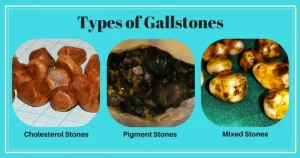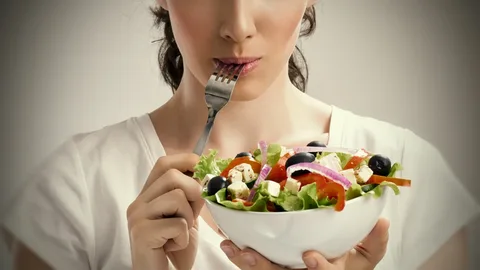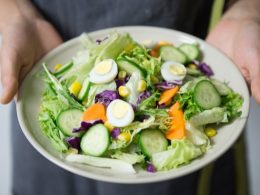Understanding Gallstones: A Brief Overview
Gallstones are small, pebble-like substances that form in the gallbladder, a small organ located beneath the liver. These stones can vary in size and composition, ranging from tiny particles to larger masses. Gallstones can develop when there is an imbalance in the substances that make up bile, a digestive fluid produced by the liver to aid in the digestion of fats.
Types of Gallstones
There are two primary types of gallstones: cholesterol stones and pigment stones.
Cholesterol Stones
Cholesterol stones are the most common type of gallstone and are primarily composed of hardened cholesterol. Factors such as obesity, high cholesterol levels, and a diet rich in saturated fats can contribute to the formation of cholesterol stones.
Pigment Stones
Pigment stones, on the other hand, are made up of bilirubin, a waste product formed when the liver breaks down old red blood cells. These stones are often associated with conditions such as cirrhosis, hemolytic anemia, and certain infections of the bile ducts.

The Role of Diet in Gallstone Formation
Diet plays a significant role in the development of gallstones. Certain dietary habits and food choices can increase the risk of gallstone formation, while others may help prevent their occurrence.
High-Fat Diet
Consuming a diet high in saturated fats and cholesterol can contribute to the formation of gallstones. Foods such as fried foods, fatty cuts of meat, processed snacks, and high-fat dairy products should be consumed in moderation to reduce the risk of gallstone formation.
Low-Fiber Diet
A diet low in fiber can also increase the risk of gallstones. Fiber helps to regulate digestion and promote the healthy functioning of the digestive system. Therefore, incorporating plenty of fiber-rich foods such as fruits, vegetables, whole grains, and legumes into your diet is essential for gallstone prevention.
Rapid Weight Loss
Rapid weight loss, particularly through crash diets or extreme calorie restriction, can increase the risk of gallstone formation. When the body loses weight quickly, the liver releases extra cholesterol into the bile, which can lead to the formation of gallstones. Gradual, sustainable weight loss is recommended to reduce this risk.
Importance of Hydration
Staying hydrated is crucial for gallstone prevention. Adequate hydration helps to keep bile diluted and prevents the buildup of concentrated bile, which can contribute to the formation of gallstones. Aim to drink plenty of water throughout the day to support optimal gallbladder health.

Dietary Recommendations for Gallstone Prevention
Making mindful dietary choices is key to reducing the risk of gallstone formation and promoting overall gallbladder health. Here are some dietary recommendations to consider:
Emphasize Plant-Based Foods
Include plenty of fruits, vegetables, whole grains, nuts, seeds, and legumes in your diet. These foods are rich in fiber, vitamins, minerals, and antioxidants, which support digestive health and may help prevent gallstone formation. Explore more About Health
Choose Healthy Fats
Opt for sources of healthy fats such as olive oil, avocado, nuts, and fatty fish like salmon and mackerel. These fats are rich in omega-3 fatty acids and monounsaturated fats, which have anti-inflammatory properties and may reduce the risk of gallstone formation.
Limit Saturated and Trans Fats
Reduce your intake of foods high in saturated and trans fats, such as red meat, processed meats, fried foods, and commercially baked goods. These fats can increase cholesterol levels and contribute to gallstone formation.
Maintain a Healthy Weight
Maintaining a healthy weight through a balanced diet and regular physical activity is essential for gallstone prevention. Aim to achieve and maintain a body weight that is appropriate for your height and build to reduce the risk of gallstone formation.
Practice Portion Control
Be mindful of portion sizes, especially when consuming high-fat or high-calorie foods. Eating smaller, more frequent meals throughout the day can help prevent overeating and reduce the strain on the gallbladder.
Stay Hydrated
Drink plenty of water throughout the day to stay hydrated and support optimal gallbladder function. Aim to consume at least eight glasses of water daily, and opt for water over sugary or caffeinated beverages.
Conclusion
In conclusion, the relationship between diet and gallstones is complex, with various dietary factors influencing gallstone formation. By adopting a balanced diet rich in fiber, healthy fats, and plant-based foods, while limiting intake of saturated fats and maintaining a healthy weight, individuals can reduce their risk of developing gallstones and support overall gallbladder health. Making mindful dietary choices and practicing healthy eating habits are essential steps towards preventing gallstones and promoting long-term wellness.












